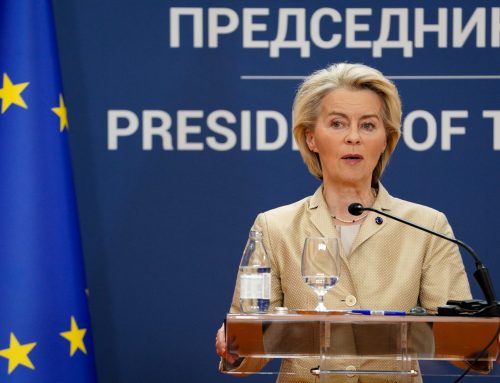Losses due to tax fraud and evasion are estimated at several hundred billion euro a year in the EU alone and improving tax compliance remain an extraordinary challenge to both EU members and beyond, Algirdas Šemeta, European Union Commissioner for Taxation, Customs, Anti-Fraud, Audit and Statistics said.
The shadow economy accounts for nearly 15% of EU Gross Domestic Product and the VAT gap amounted up to 18% in 2011, the commissioner Šemeta told the General Assembly of the Intra-European Organisation of Tax Administrations (IOTA), a non-profit intergovernmental organisation to assist European countries in improving their tax administrations.
“There have been many developments at national, EU and international level which should help improve tax compliance substantially over the coming years,” the commissioner said.
“Yet, at the same time, many countries are still facing difficulties in finding the tax revenues to finance their public policies, and compliance (or lack of it) remains a central challenge for tax administrations,” he added.
To address these problems a dual approach is needed: enhancing voluntary compliance to safeguard tax revenues must be at the core of every tax administration’s mission while it is neccessary to sharpen policy towards tax evaders.
“We must make it easier for those who want to respect their tax obligations to do so. On the other hand, we need to come down hard on those who deliberately seek to evade taxes, or who engage in aggressive tax planning to minimise their contributions,” Šameta said.
“This is important not only from a revenue point of view, but also to ensure fairness in taxation,” he added.
A Standard VAT return, which would harmonise the information required for declaring VAT, and the timelines to do it, across Europe is currently being discussed by EU Finance Ministers and the Italian Presidency has vowed to secure agreement on this by the end of the year, the commissioner said.
European Commission is also intensively working on the European Taxpayers’ Code as a blueprint for relations between taxpayers and their tax administrations.
“A pan-EU Code would be an assistance to companies operating in our Single Market, and an asset to Member States in improving compliance,” he said.
Work is also underway to design a European Taxpayer Identification Number (TIN) that would make easier for authorities to identify taxpayers properly despite increased mobility of people and economic activity, he added.
Fighting tax fraud and evasion
On the other side of the compliance issue, the commissioner said, “the fight against tax evasion has risen to the very top of the political agenda in Europe and internationally these past years.”
“At EU level, our ambitious Action Plan against evasion, and our measures to shut-down tax avoidance opportunities, implement the widest scope of automatic exchange of information, and fight VAT fraud more quickly, show that we can continue to set the global pace in tax good governance,” he said.
According to him, the work to improve fight against tax evasion and avoidance, so far, has been a resounding success.
“The challenge now is to ensure that momentum is sustained, and that what is agreed by leaders is fully implemented on the ground,” he said.




